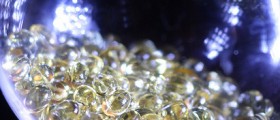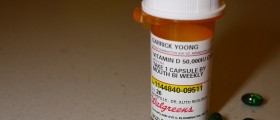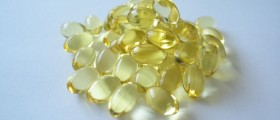
How to recognize vitamin D deficiency?
Vitamin D is a vitamin that our body creates when it is exposed to sunlight. It is a fat-soluble vitamin and it is stored in the liver. It is very important for strong and healthy bones, because it facilitates the absorption of calcium and potassium, thus helping in maintaining their levels in the body. Aside from this, it also enhances the immune system and affects the secretion of parathyroid hormone. Some researches showed that this vitamin helps in the prevention, as well as in the treatment of diabetes, hypertension, and even multiple sclerosis, which implies its importance.
In case of vitamin D deficiency, a number of health issues may appear, particularly those that are related to skeletal deformities, such as osteomalacia and osteoporosis. And this is not all, because the risk of getting, some cardiovascular diseases, severe asthma, or even cancer is increased with a vitamin D deficiency.. Signs that might help in identifying this condition include pain in the bones and muscles, weak and softening bones, migraine, headaches, tiredness, and brittle nails. Depression, hypertension and even tuberculosis might also be associated with vitamin D deficiency.
What are the causes of vitamin D deficiency?
Several reasons might cause vitamin D deficiency, and among the most common are, limited exposure to sunlight, darker skin, and obesity. In people with darker skin, the ability of their skin to create vitamin D when in sunlight is decreased, while obese people generally have lower levels of this vitamin in the blood. Those who are vegetarians should be particularly careful, since their diet is based on the food that either does not contain vitamin D or it contains very small amounts of it. Over time the kidneys lose their ability to convert vitamin D to the active form, which is why the risk of deficiency is increased. Diseases such as Crohn’s disease, celiac disease and cystic fibrosis might affect the ability of the intestines to absorb this vitamin, which might also result in vitamin D deficiency.
The treatment of this condition requires certain changes in the diet, since it is important to consume more foods that contain vitamin D. Besides egg yolk, dairy products, cheese, fish oils, beef liver, tuna, sardines, there are fruits and vegetables that are rich in it and among them are broccoli, Chinese cabbage, legumes, beans, oranges and almonds. What is also available are vitamin D supplements.

















Your thoughts on this
Loading...